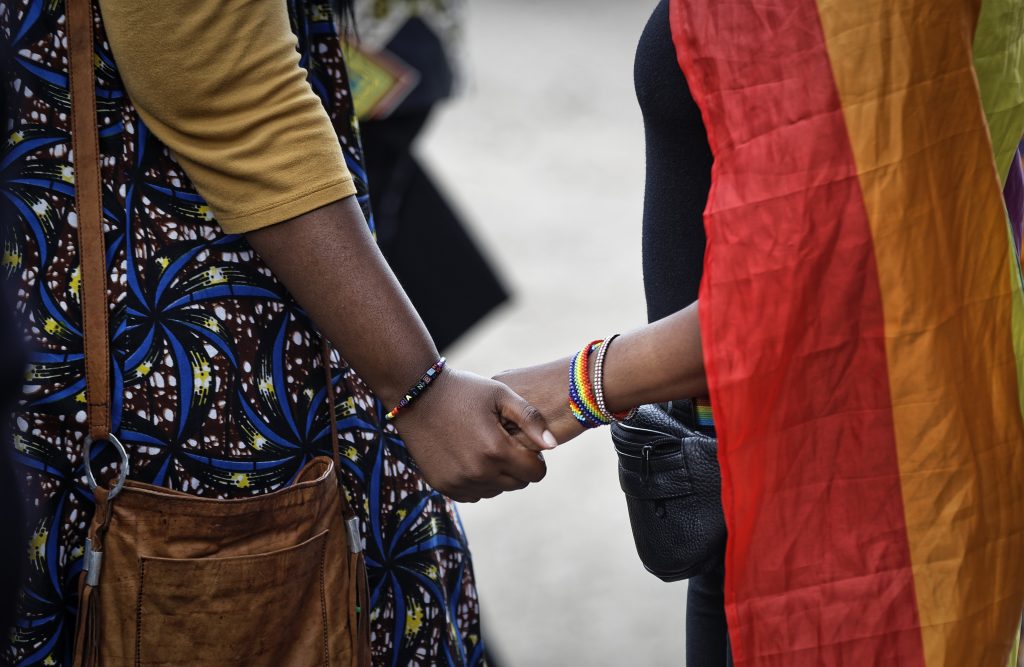The Nigerian Government has confirmed signing the Samoa Agreement but clarified that Nigeria’s law banning same-sex marriage takes precedence.
The Samoa Agreement, named after the Pacific Island where it was signed, includes clauses requiring support for LGBT rights in exchange for financial aid from developed nations.
This has sparked controversy in countries with strong Islamic and Christian values.
Minister of Information Mohammed Idris stated on Thursday that Nigeria signed the agreement on June 28, 2024, during a meeting of the Organisation of African, Caribbean, and Pacific States (OACPS) in Brussels.
He said the agreement involves the EU and its member states partnering with OACPS members.
Idris akso said negotiations for the agreement began in 2018, and it includes 103 articles focusing on cooperation in areas like economic growth, human development, and climate change.
He said Nigeria ensured that none of these articles conflict with its constitution or laws, including the 2014 law against same-sex relationships.
The Information Minister assured Nigerians that the government would not agree to anything harmful to the country.
He said the Samoa Agreement aims to foster sustainable development, fight climate change, attract investments, and enhance international cooperation among OACPS member states.
The statement reads:
“On 28 June 2024, Nigeria signed the Samoa Agreement at the Organisation of African, Caribbean, and Pacific States (OACPS) Secretariat in Brussels, Belgium. The partnership agreement is between the EU and its Member States, on one hand, and the members of the OACPS on the other.”
“Negotiations on the agreement started in 2018, on the sidelines of the 73rd United Nations General Assembly. It was signed in Apia, Samoa on the 15th of November 2018 by all 27 EU Member states and 47 of the 79 OACPS Member states.
“The agreement has 103 articles comprising a common foundational compact and three regional protocols, namely: Africa –EU; Caribbean-EU, and Pacific-EU Regional Protocols with each regional protocol addressing the peculiar issues of the regions.
“The African Regional Protocol consists of two parts. The first is the Framework for Cooperation, while the second deals with Areas of Cooperation, containing Inclusive and Sustainable Economic Growth and Development; Human and Social Development; Environment, Natural Resources Management, and Climate Change; Peace and Security; Human Rights, Democracy and Governance; and Migration and Mobility.
“Nigeria signed the Agreement on Friday 28 June 2024. This was done after the extensive reviews and consultations by the Interministerial Committee, convened by the Federal Ministry of Budget and Economic Planning (FMBEP) in collaboration with the Ministry of Foreign Affairs (MFA) and Federal Ministry of Justice (FMOJ). It was ensured that none of the 103 Articles and Provisions of the Agreement contravenes the 1999 Constitution as amended or laws of Nigeria, and other extant Laws.
“In addition, Nigeria’s endorsement was accompanied by a Statement of Declaration, dated 26th June 2024, clarifying its understanding and context of the Agreement within its jurisdiction to the effect that any provision that is inconsistent with the laws of Nigeria shall be invalid. It is instructive to note that there is an existing legislation against same sex relationship in Nigeria enacted in 2014.
“It is necessary to assure Nigerians that the President Bola Tinubu Administration, being a rule-based government will not enter into any international agreement that will be detrimental to the interest of the country and its citizens. In negotiating the Agreement, our officials strictly followed the mandates exchanged in 2018 between the EU and the OACPS for the process.
“The Samoa Agreement is nothing but a vital legal framework for cooperation between the OACPS and the European Union, to promote sustainable development, fight climate change and its effects, generate investment opportunities, and foster collaboration among OACPS Member States at the international stage.”

